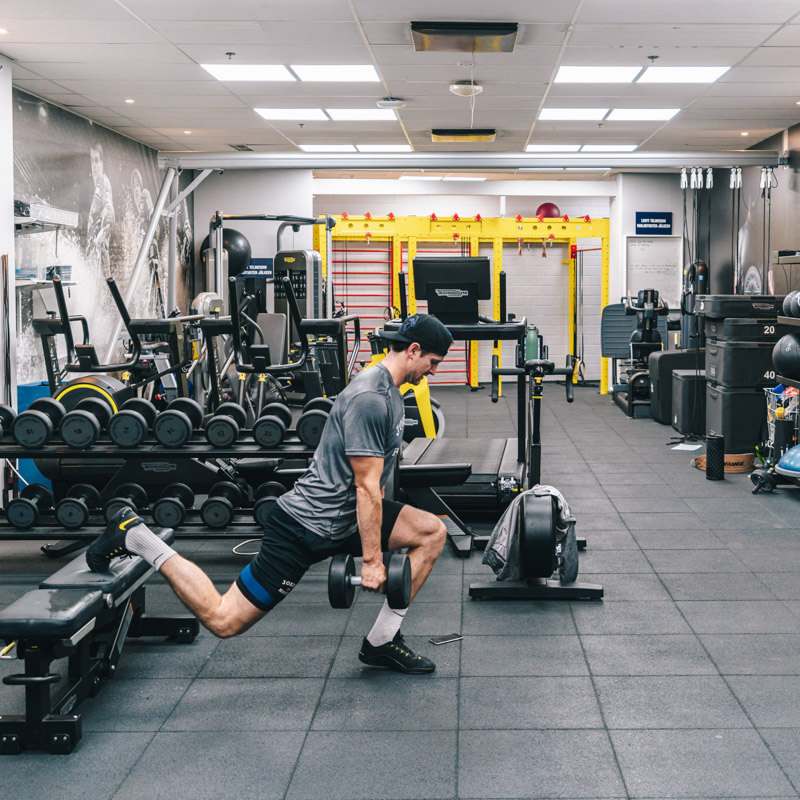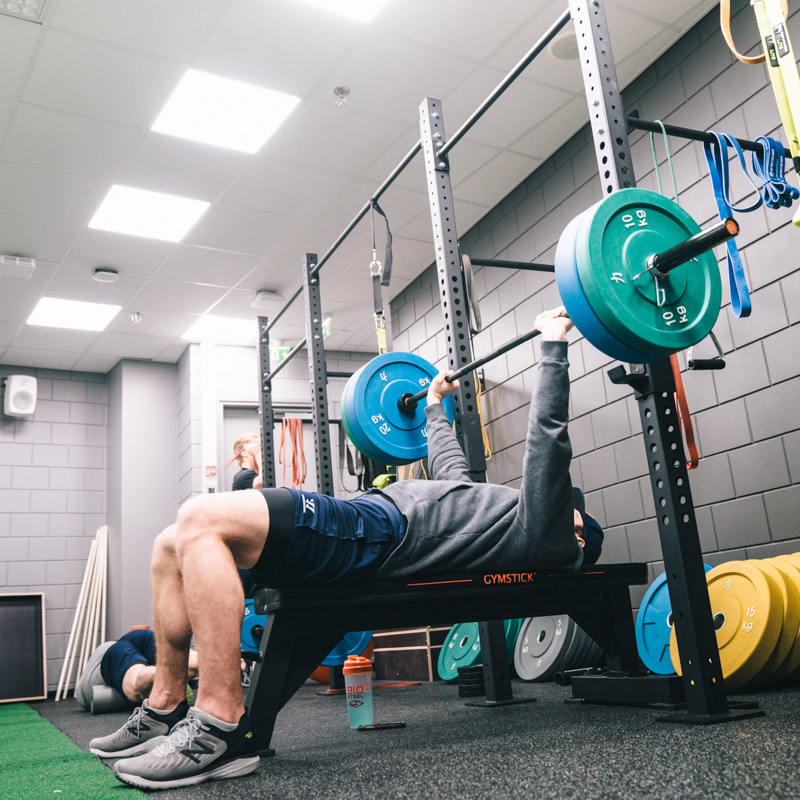Sports
Energizing athletes
There is a growing interest in the use of light to improve athletic performance. Light is the most important external synchronizer for the circadian rhythms in the body, which affects our performance during the day. Biocentric lighting, which supports our circadian rhythm, can therefore be useful for elite athletes.



Optimal training environments all day long.
Balancing training, work commitments, family and personal life is a difficult challenge for an elite athlete and many times sleep pay the price. Studies report a decrease in endurance performance, where diminished motivation due to sleep deprivation is thought to be part of the explanation.¹ With Biocentric lighting, the training environment can help athletes entrain their bodies to their natural circadian rhythm to avoid sleep disruptances.

Benefits of Biocentric lighting
- Improve team performance
- Support rest & recovery
- Alleviate jet lag
Better sleep
For athletes, sleep deprivation can have several negative effects on performance. Good sleep, and even sleep extension, can deliver performance improvements, as seen in improved reaction times, turn times, and overall sprint times among swimmers². Scientific research suggests that motor sequence learning depends on quality sleep within the first 24 hours after training³.
Alleviate jetlag
Traveling across time zones leads to a de-synchronization of circadian rhythms, where the human body tries to adapt to the time change. The International Federation of Sports Medicine recommends to gradually shift the sleep schedule (30 to 60 minutes per day) toward the destination time zone for a few days prior to departure by using appropriately timed bright light and darkness, melatonin, or exercise to shift circadian rhythms⁴.
Improve performance
Elite athletes carefully evaluate the aspects of their lives that can impact their performance. Furthermore, the direct alerting effect of light can be used to improve alertness and motivation. Light “showers” that provide high intensity cold white light may also be used to boost alertness and energy.
Downloadable Materials
References
- Thun E, Bjorvatn B, Flo E, Harris A, Pallesen S. Sleep, circadian rhythms, and athletic performance. Sleep Med Rev. 2015. doi:10.1016/j.smrv.2014.11.003
- Halson SL, Juliff LE. Sleep, sport, and the brain 2. 234:13-31
- Venter RE. Role of sleep in performance and recovery of athletes: A review article. South African J Res Sport Phys Educ Recreat. 2012;34(1):167-184.
- FIMS Position Statement: Air Travel and Performance in Sports. March 2004.
